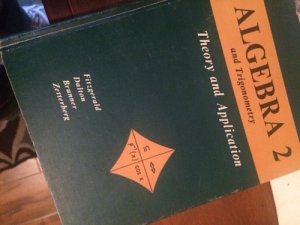- Joined
- Jan 30, 2008
- Messages
- 5,083
bunnycat|1489337443|4139483 said:One of the problems as I said, is also deciding what a person ought to know for college.
Most people in a college degree plans have a mathematic requirement. Every semester, my hubby Mr Bcat, who as Asst Dpt Chair also advises student on courses. Many students do not come out of high school with even the basic understanding to pass the lowest college level math course a person can take to satisfy their degree plan- college algebra. There is a math for non science majors class that he always encourages students not going on in science to take, which covers more "life applications" like understanding loans and mortgages and fulfills their requirements. Still, they sign up for CA, and fail. And fail. And fail....over and over til they are forced to go back to remedial math (that you don't get any college credit for) and they fail, and they fail. And this is a whole topic unto itself - why are we as a society, admitting so many kids to college who are either not prepared, or never will be. Lots of ways to look at it. It certainly is discouraging and costly to those kids who are admitted and can't cut the muster. Cynical me would suggest there is an element of cash cow for the colleges to have a revolving door of kids having to take remedial classes. Big picture me says because we as a society are in a big bucket of denial about the economic and technological changes that mean many of our kids who can't/shouldn't do college (like the 70+% who have never in our entire history, been college educated), will never find good, livable jobs like those available in the 60s and 70s. Desperate parents and governments just won't stop trying though, and I get it, but it still doesn't address the real issues.
And the state (and I live in a SUPER conservative state, so I hope no one thinks to say to me that the "progressive" state and their mandates to the "progressive" universities is the problem as the article assumes- I assure you, the last time this state was blue was in the 70's).
So the state mandates to the colleges (and the college the hubbles teaches at is fairly progressive) what scores a student must have to take Coll Alg, and the hubbles has argued repeatedly that they have set the score too low, and people just are not prepared, and aren't going to pass. You'd be surprised how many college profs (at least that my husband has had dealings with) apparently have zero idea that the state mandates what is taught. My hubs was at an in-service where a college prof (women's studies) was ragging on the high school teachers the kids were so ignorant on any kinds of women's history. My husband pointed out that these topics were not part of our state's pass standards, and the guy looked blank and then asked what those were. He had zero clue.
And after 25 years teaching at college level...I know who I believe when it comes to him or them! The state controls funding. The state and state school board (let me remind you this is a very very very red state) also regulates the curriculum that must be covered. I can assure you it is not a "liberal" issue, but as I said, reactions to the way our society has developed. The solutions aren't WORKING, but that is beside the point here. My husband's father taught for 34 years, my husband for 20, starting about the time his father retired - he did his student teaching while his dad was still in the building where both of their careers have played out - teaching the same topic, history. So over 50 unbroken years of insider knowledge of how education works in my state. And my hubs would agree with yours on the above.
With further research (as opposed to researching just enough to be able to twist ideas to ride their obvious political hobby horse) they might have found that the issue is not the testing itself, but the testing as a be all and end all, to the point that it has become the basis for funding. Objective tests are fine, the show certain things that used correctly can be helpful. However, basing an education system around only those is how we got to where we are. Word.




300x240.png)